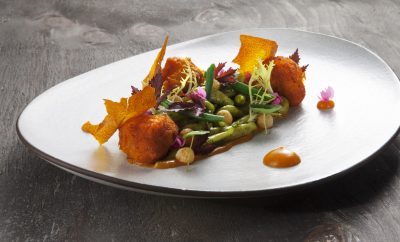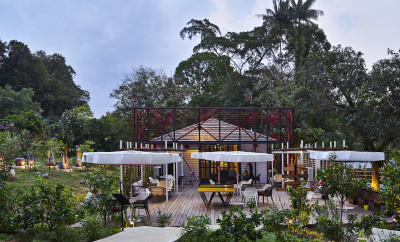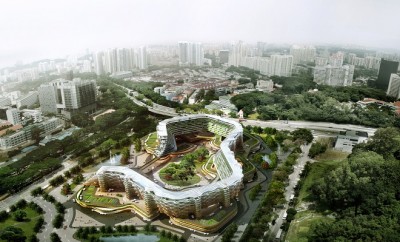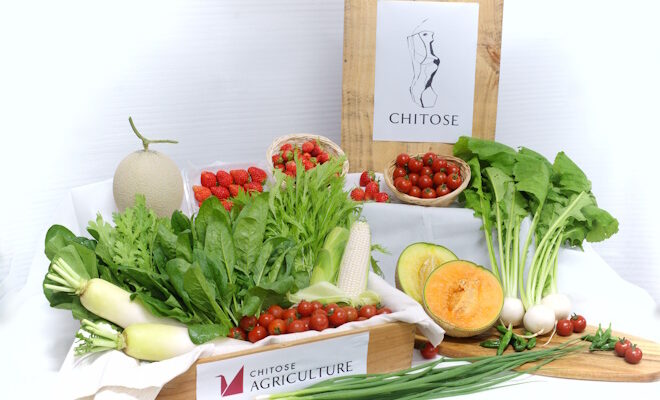
Health x Wellness
Chitose Agriculture: Revolutionising local farming with Japanese techniques for a healthier Singapore”
In an era where the price of fresh fruits and vegetables can make your heart skip a beat, it’s easy to blame poor diet and cholesterol. However, nourishing your body with wholesome food doesn’t have to come with a hefty price tag or a long journey wrapped in plastic and preservatives.
Enter Chitose Agriculture, a Japanese fertiliser company that’s changing the game by bringing advanced farming techniques to local farms in Singapore. Their mission? To deliver the freshest Japanese produce right to your table, without the environmental cost.
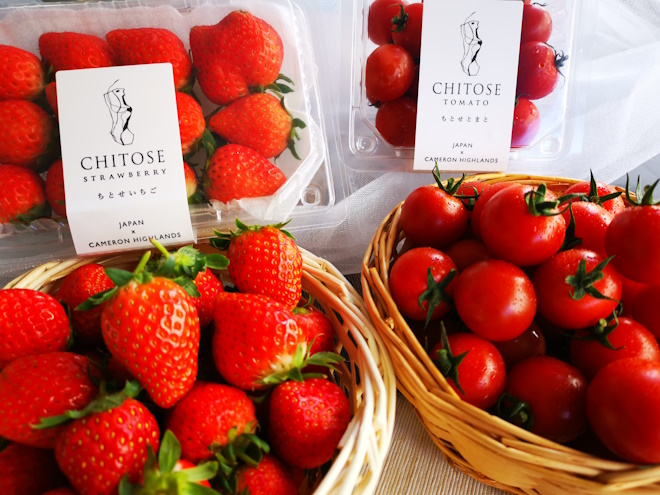
Chitose’s proprietary advanced monitoring system enables local farmers to replicate the optimal conditions for growing premium Japanese produce. By recreating the specific soil quality, temperature, humidity, and other variables, they ensure that you can enjoy top-quality produce within just 1-2 days of harvest.
There is a strong emphasis on environmentally conscious cultivation practices. Their proprietary fertiliser blends leverage the power of biological solutions, such as natural predators, instead of relying on chemical pesticides. This approach safeguards the long-term fertility and health of the land for future generations.
Since its inception in 2016, Chitose’s produce has found its way to many retail outlets in Singapore and Malaysia. Over 100 businesses, including Mediya, ISETAN, and the Mandarin Oriental KL, source their fresh produce from Chitose-backed farms.
We had a discussion with Nickaila Hau, Regional Relationship Manager of Chitose Agriculture to understand more about the organisation, and 2024 plans.
the Active Age (AA): Please share about the background of Chitose.
Nickaila Hau (NH): Chitose translates to 1000 years in Japanese, reflecting our vision, the “Thousand Year Initiative.” Our goal is to ensure that future generations can relish the same quality and delectable produce we enjoy today, achieved through agricultural sustainability and optimal soil practices. To realise this vision, we emphasise good agricultural practices that are economically sustainable, ensuring the longevity of agriculture. We have been operating our farm in Cameron Highlands using proprietary sustainable technology since 2016.
Starting with sweet Japanese strawberries, our farm now cultivates cherry tomatoes, sweet Japanese spinach, Japanese roquette, Japanese musk melon, and more. These produces are made available to consumers in Singapore and Malaysia. Since 2018, we have collaborated with like-minded farmers to expand our initiative, working towards a collective goal of promoting sustainable agriculture. Our mission extends beyond producing quality crops; we aspire to raise awareness about the importance of sustainable agriculture and seek support for our initiative.
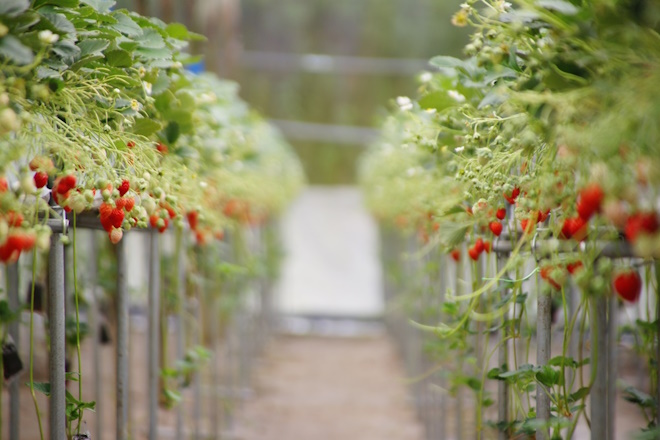
AA: Why did the brand decide to make its way to Singapore?
NH: We recognise the demand in Singapore for fresh Japanese produce. The diverse culinary scene and savvy consumers made it a perfect fit for our premium offerings.
We set up farms here in South East Asia, aiming to cater to a sophisticated market while contributing to global conversations on sustainable agriculture, a move that significantly shaped our growth. Adapting to the unique climate in this tropical region, we employed sustainable farming tech, fine-tuned for the tropics, letting us grow excellent produce while preserving Japanese farming essence.
Together, we introduce the richness of Japanese agricultural traditions, fostering a broader understanding of sustainable farming and gaining support for our mission.
What distinguishes us is the year-round availability of our produce, in contrast to the seasonal nature in Japan. Opting for local cultivation proves more cost-effective than importing from Japan, offering sustainability benefits by minimising carbon footprint through shorter transportation distances. Our target market extends beyond Japanese restaurants to those serving international cuisines, showcasing the versatility of our crops. Notably, clients appreciate both the healthy, delicious produce and our commitment to sustainable agriculture.
AA: What are some of the farming/agricultural techniques that Chitose has brought to Singapore and Malaysia, and why do they work in our different climate and environment?
NH: Some of the farming methods include techniques such as single layer stacks for strawberry cultivation, as well as preferential use of natural predators over pesticides. These farming techniques work because they are easily adaptable to our climates.
Take, for example, our strawberries grown in Cameron Highland. Our strawberries are grown in a single layer stack, ensuring uniform sun exposure for stable quality. This method minimises the use of fertilisers and chemicals, with a preference for bio-technology. Situated at an altitude of 1300m-1600m, our farms benefit from an ideal climate with a sufficient amount of sunshine, a temperature gap between daytime and night, and a stable season, allowing us to supply high-quality strawberries throughout the year.
We prioritise natural solutions for pest control, avoiding pesticides and instead employing natural predators like Phytoseiulus persimilis, Neoseiulus californicus and Amblyseius swirskii that pose no harm to our crops as they are native to our environment. We also deploy the use of a computerised dripping system to further ensure the prevention of contamination by constant monitoring of the farm’s environment. This way we can continue to uphold the highest standards in food safety.
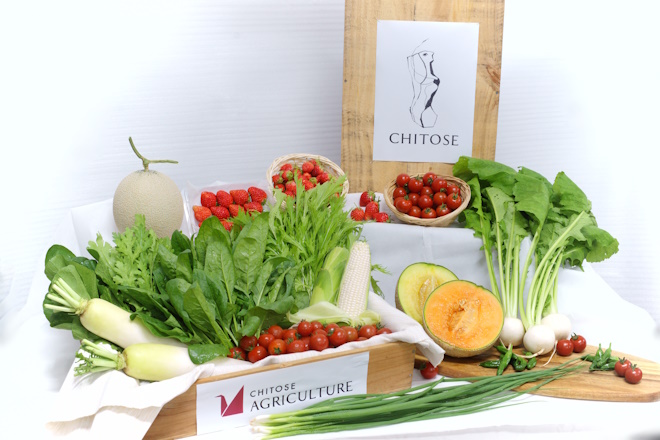
AA: What are some of the crops/items being farmed by the local farmers in Singapore and Malaysia?
NH: In Singapore, we have Pak Choi and HK Choy Sum. While in Malaysia, we have strawberries, cherry tomatoes, muskmelons, white sweet corn, kabu, mizuna, horenso, nasu, daikon, and more.
AA: What are some of the challenges Chitose has found in bringing Japanese-style local produce to these markets?
NH: When people first hear about us, they might think our produce is just from Cameron Highlands and a bit on the pricey side. But there’s more to the story! We tailor our farming methods to bring the best our produce can offer in a climate that is most suitable for their development. We use top-notch technology to grow Japanese breeds locally. We always educate our clients about our agricultural methods.
So in reality, our produce is comparable to those you would get from Japan, maybe even better because of the shorter transport time from our farms to your tables. This means we can provide customers with fruits and vegetables that are not only fresh but also harvested at their best.
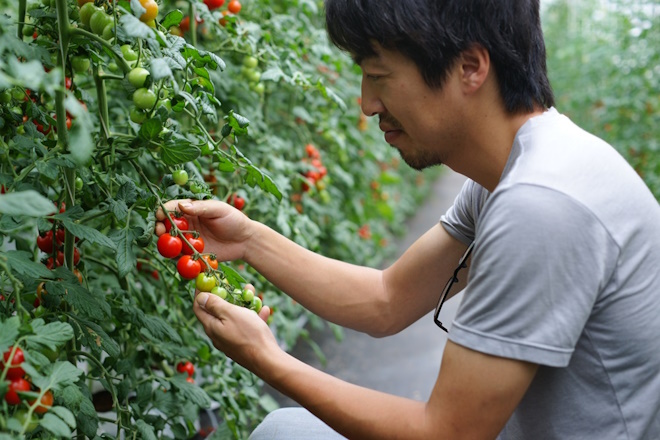
AA: What can we look forward to from Chitose in 2024?
NH: At Chitose, our goal is to spread the joy of our delicious produce and share our vision with a wider audience. We have a close collaboration with the Japanese Embassy of Singapore, participating in local events to showcase our business and produce.
In fact, this coming April, we will be exhibiting our produces at the Food & Beverage 2024 (FHA) from the 23rd to the 26th.
We are also actively expanding our farms in Cameron Highlands to boost production, and we are always seeking new partnerships with restaurants and like-minded farmers. Stay tuned for upcoming events that will help us reach even more people.
Pictures provided by Chitose Agriculture.

